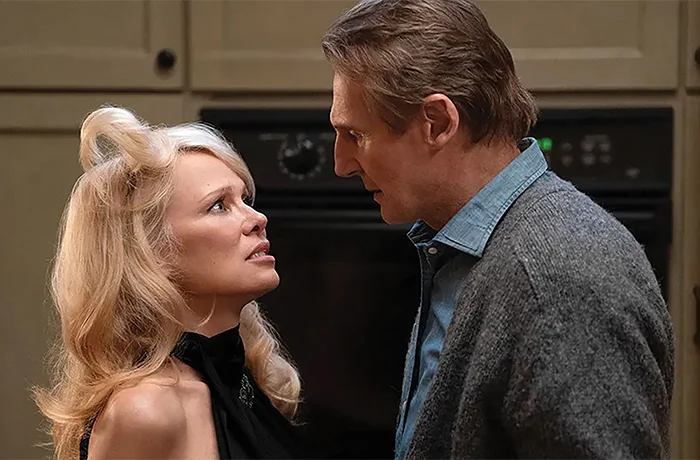Five summers ago, we were told to wear masks, compelled to take vaccines, prohibited from looking at certain statues (which were helpfully torn down), and scolded for enjoying any movie or TV show that presented law enforcement officers empathetically or humanely. The May 2020 death of George Floyd not only birthed the so-called second “Summer of Love,” but, in the pop culture realm, it resulted in the cancellation of the widely popular reality TV shows Cops and Live PD and an industry-wide reconsideration of police-oriented entertainment. Few endeavors could signal virtue as pointlessly or gratuitously.
As late as October of that year, the Hollywood Reporter surveyed various TV writers about “how they would address the current moment if they wrote a cop show.” The responses ranged from cringe-worthy to legitimately ominous. “Shut down the police station and write what happens next,” said Ramy Youssef of the series Ramy. “Give America the ability to visualize a reality without centralized police.” So much for Hill Street Blues and NYPD Blue, eh?
Meanwhile, Lena Waithe of the show Twenties seemed to endorse the Code of Hammurabi, at least as far as TV was concerned. “Create a world where whenever a police officer kills someone, someone in that police officer’s family dies instantly,” Waithe said. “So whatever grief they inflict will also be inflicted on them. Maybe we could call it an Eye for an Eye.”

On this topic, at least, we have come a long way. Not only has Cops been restored to its rightful place on American TV sets and Live PD been reincarnated as On Patrol: Live, but The Naked Gun film franchise has been revived without apparent controversy — other than the artistic controversy of rebooting a franchise that conferred cinematic immortality upon Leslie Nielsen for his performance as Detective Frank Drebin, an unusually slow-witted, literal-minded police officer.
On the one hand, the original The Naked Gun films, released from 1988 through 1994, could appear to make fun of police work and its practitioners. However, I suspect most police officers understand that the films’ object of parody is not law enforcement specifically but dumbness generally. Furthermore, the scolds who tried to wish away police-centric entertainment five years ago would likely understand the danger of something like The Naked Gun: to laugh at Drebin is, in a sense, to make him lovable, and the last thing the police defunders want are lovable police officers.
In the eminently praise-worthy new movie, Frank Drebin Jr. (Liam Neeson) is agreeable in the manner that dopey but well-intentioned people tend to be. He refers to his deceased father as “daddy” — in the universe of the film, that’s Nielsen’s Drebin — and he expresses touching affection for emblems of vanished cultural eras, including the Black Eyed Peas and the TiVo recording device. Drebin was a parody of an earlier type: the no-nonsense professional who gave the impression of competency but, in fact, had no discernible skills. By contrast, Drebin Jr. is more like a clumsy, aging Saint Bernard: a big, shambling man who wears a dour frown but can turn touchy-feely when the talk turns to romance, owls, or turkey dinners. Once the star of such dramas as Woody Allen’s Husbands and Wives, Barbet Schroeder’s Before and After, and, above all, Steven Spielberg’s Schindler’s List, Neeson long ago diminished his credibility by consenting to appear in multiple iterations of the Taken action franchise. At this point, perhaps the best career move, or the only career move, was to make a movie like this one that at least suggests he is in on the joke.
Directed by Akiva Schaffer, the new The Naked Gun does not attempt to reformulate the ingredients mixed so well by the Zucker-Abrahams-Zucker team from the original series. Moment by moment, the film propels itself forward with a paper-thin procedural plot: Here, Drebin Jr. finds himself in a standoff against tech tycoon Richard Cane (Danny Huston, an inspired choice), who has developed a gizmo that will draw out humanity’s coarsest instincts with the aim of its eventual self-destruction, thus leaving a self-appointed elite free to rule the world unfettered.
One might expect allusions to the easily mockable Elon Musk, but, for the most part, Schaffer resists timely political commentary. Instead, this outlandish plot is merely the means by which the film delivers its bounty of jokes. As in the Nielsen movies, even a standard walk-and-talk scene between Drebin Jr. and colleague Captain Ed Hocken Jr. (Paul Walter Hauser) serves as the excuse for some background piece of outrageousness, such as a police photographer shooting a mugshot with something of the flair of Francesco Scavullo. At another point, after Drebin Jr. is summoned to the scene of a car crash, he places one hand in a glove but proceeds to root around the vehicle with his other hand; later, at the police station, juveniles who were operating a lemonade stand are led away by officers.
The original films set a high bar for the number of such random asides included, but Schaffer and co-writers Dan Gregor and Doug Mand did their best to incorporate the maximum amount tolerable. Eventually, Pamela Anderson enters the scene as femme fatale Beth Davenport, and if Anderson never makes another movie, she is to be applauded for the abandon with which she scat-sings in a jazz club to distract the bad guy, Cane, as well as the gravitas with which she replies to Drebin Jr. after he asks her if she attended UCLA: “I see LA every day.”
The plot imaginatively updates signature features from the earlier films, supplanting the Ghost love scene parody with Nielsen and Priscilla Presley with an equally preposterous ski resort-set romantic montage with Neeson, Anderson, a snowman, and the song “Nothing’s Gonna Stop Us Now” by Starship. (This is the rare movie that does not lose anything when its dialogue is quoted verbatim in a review, as reviews tend to flatten out dialogue, which is exactly the register in which gems such as this are spoken: “You suspect something foul?”/“No, I don’t think a chicken could have done this.”)
Why do we chuckle when Cane asks, “May I speak freely?” and Davenport answers, “I prefer English”? Why do we chortle when Drebin Jr., upon being summoned by his superior, turns up in her bedroom in the middle of the night and speaks in sotto voce so as not to awaken her snoozing husband? Of course, there will always be an appeal to inane dialogue and senseless situations that are presented in a poker-faced manner. That’s why the mockumentary format used by Allen in Take the Money and Run, and later perfected by Rob Reiner in This Is Spinal Tap, remains so enduringly appealing. However, in the case of the latest The Naked Gun, I think we laugh partly out of relief that the summer of 2020 is over, and it is culturally acceptable once again to laugh at a police officer mowing down bicyclists, mucking up a crime scene, and beating up witnesses without feeling the slightest twinge of social responsibility. At last, our long national nightmare of pretending that we can live without the police is over, and so is the illusion that we can live without movies or shows about the police, even funny or amusing ones.
“You know, Frank, you’ve made me a very happy woman,” Davenport says at the end of the movie. “Me, too,” he answers in his usual way — and let’s make that me three.
Peter Tonguette is a contributing writer to the Washington Examiner magazine.















